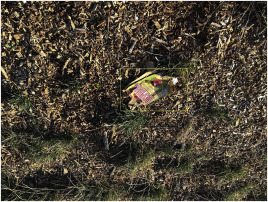While the number of medical human rights programs has increased, there is substantial unmet need for forensic evaluations among asylum seekers throughout the United States. From September 2019 through May 2020, the Mount Sinai Human Rights Program has coordinated pro bono forensic mental health evaluations by telephone or video for individuals seeking protected immigration status who are unable to access in-person services. The national network clinicians conducted 32 forensic evaluations of individuals in eight U.S. states and Mexico seeking immigration relief.
Objective: Mental health and cognitive difficulties are highly prevalent across neurological disorders and significantly contribute to poorer patient outcomes. Unfortunately, access to effective psychological services for these comorbidities are limited. To determine whether a novel transdiagnostic internet-delivered psychological intervention, the Wellbeing Neuro Course, was feasible, acceptable and efficacious a single-group feasibility open trial was employed. Methods: The Wellbeing Neuro Course, targets mental health and cognitive difficulties, across a variety of neurological disorders.
Background: Alcohol use disorder is a highly prevalent disease with multiple medications available for treatment. The overall prevalence of patients receiving pharmacotherapy is believed to be low and the characteristics and comorbidities that affect receipt are not well-established. Methods: We created a dataset from Truven Health Analytics MarketScan Commercial Claims and Encounters Database of patients with an outpatient encounter for alcohol abuse or dependence in 2014.
Background: In humanitarian contexts, ensuring access to safe, nutritious, good quality and culturally appropriate food in the right quantity at the right time and place during an emergency or a protracted crisis is an enormous challenge, which is likely to increase given uncertainties such as climate change, global political and economic instability and emerging pandemics like COVID-19. Several international organizations and non-government organizations have well established systems to respond to food security emergencies.
The governance and provision of accessible transport services for students with disabilities is complex and involves numerous stakeholders, from families and schools, to transport operators and various levels of government. Experiences of traveling to school via bus can also be remarkably difficult for children with disabilities and their families. Despite the complexity and challenges associated with accessible student transport, little has been written about this topic. This scoping review begins to address this knowledge gap.
The article examines a number of ways in which the use of artificial intelligence technologies to predict the performance of individuals and to reach decisions concerning the entitlement of individuals to positive decisions impacts individuals and society. It analyses the effects using a social justice lens. Particular attention is paid to the experiences of individuals who have historically experienced disadvantage and discrimination.
Objective: Many studies evaluated how the Magnetic Resonance Imaging (MRI) field strength affects the effectiveness to detect neurodegenerative changes of Alzheimer's disease (AD), derived from atrophy or thickness. To the best of our knowledge, no study evaluated before how tissue texture changes are affected. In this research, hippocampus texture features extracted from 1.5 T and 3 T MRI are evaluated how are affected by the magnetic field strength.
Urbanisation involves major changes in environmental conditions such as light, temperature, humidity and noise levels, but the effect of urbanisation on soil conditions and soil biodiversity has received less attention. The reported effects on species richness across a rural to urban landscapes are not unequivocal. Positive, negative and neutral effects have been found, but what is causing this ambiguity in the relationship between species richness and urbanisation is poorly understood.
This review goal is to reflect on the challenges and prospects for water quality in the face of the pandemic caused by the new SARS-CoV-2 coronavirus (COVID-19). Based on the information available so far, the detection of SARS-CoV-2 RNA in wastewater has raised interest in using it as an early warning method, to detect the resurgence of infections and to report the risk associated with contracting SARS-CoV-2 in contact with untreated water or inadequately treated wastewater is discharged.
Water pollution is one of the serious threats in the society. More than 8 million tons of plastic are dumped in the oceans each year. In addition to that beaches are littered by tourists and residents all around the world. It is no secret that the aquatic life ecosystem is at a risk and soon the ratio of plastic/waste to the marine life particulary fish will be 1:1. Hence, in this paper, we have proposed a dataset known as AquaTrash which is based on TACO data set.

